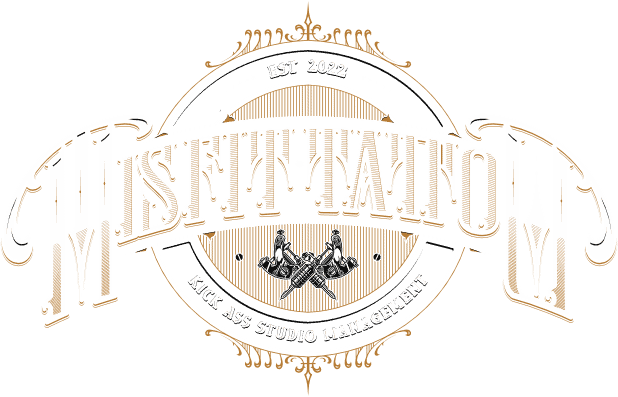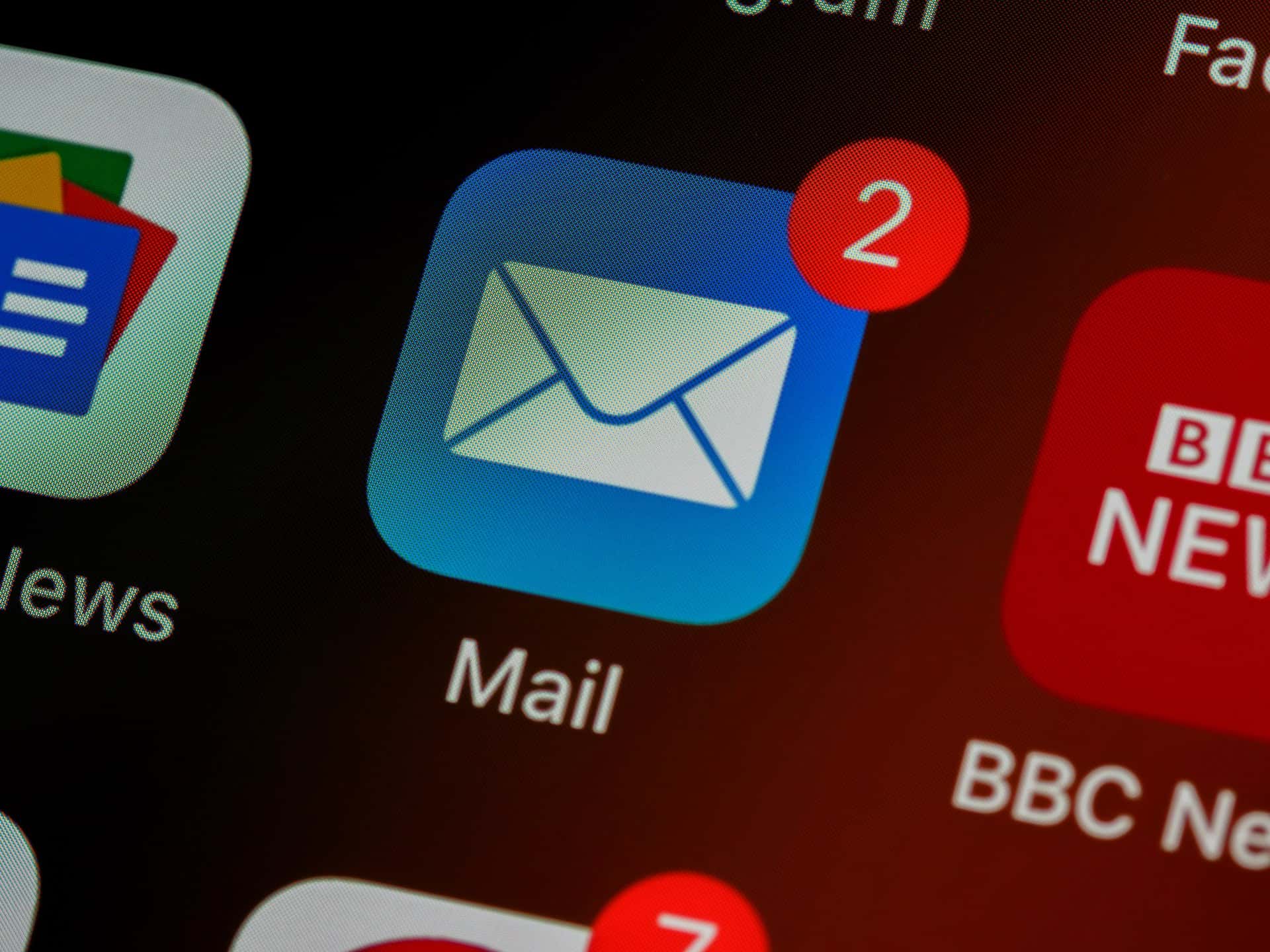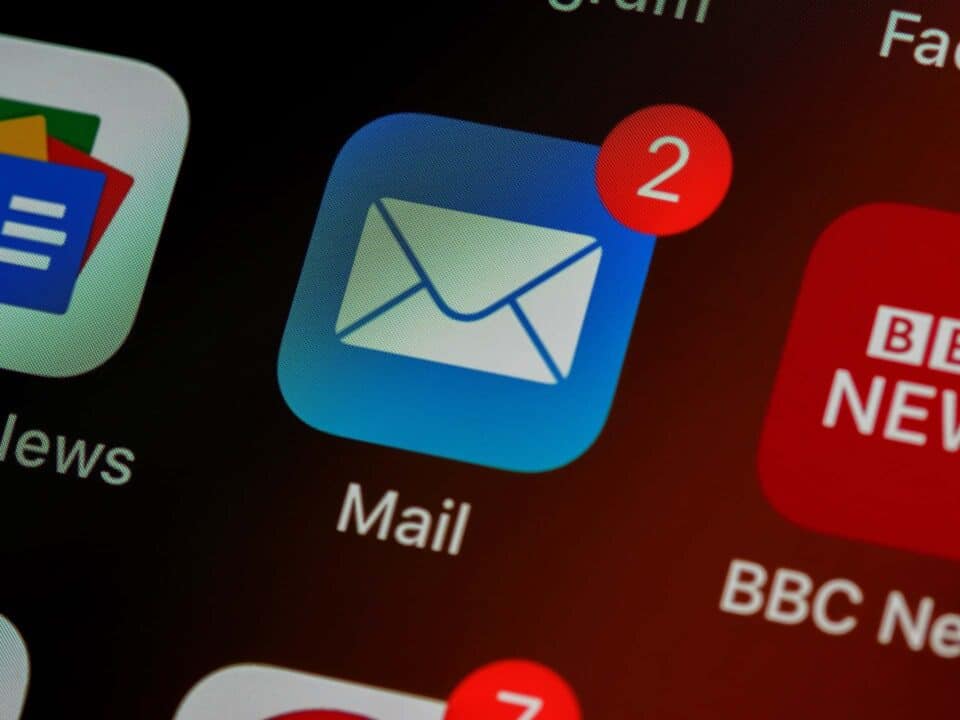Why Email Marketing?
Email marketing serves as a strategic tool for tattoo shops aiming to boost customer engagement, retention, and revenue. In the digital age, tattoo enthusiasts often search for inspirational designs and artists online, making email an effective channel for tattoo shops to showcase their artistry and skill.
3 POINTS:
- Direct Communication: Email marketing allows for direct communication with clients. It provides tattoo shops with a platform to send personalized messages about new designs, guest artists, and exclusive offers straight to their customer’s inbox. This approach fosters a sense of exclusivity and connection between the artist and the client.
- Cost-Effective Promotion: Compared to traditional advertising methods, email marketing is remarkably cost-effective. Tattoo shops can reach a large number of current and potential clients with minimal investment. Thanks to various email marketing software options offering scalable pricing plans, even small shops can afford to engage in consistent communication.
- Increase Customer Loyal: Through regular newsletters and updates, tattoo shops can keep their work top of mind for clients. By sharing engaging content like tattoo maintenance tips, latest trends in tattoo design, and artist portfolios, shops can cultivate a loyal customer base that returns for additional work.
Client Retention: Email marketing is key to client retention in the highly competitive tattoo industry. It can help shops maintain an ongoing relationship with clients. A client who receives appointment reminders, follow-up messages asking about their healing process, and announcements about shop events is more likely to become a repeat customer.
Tailored Campaigns: Tattoo shops benefit from email marketing’s adaptability. Campaigns can be tailored to target different segments of a shop’s audience—whether it’s those interested in minimalist designs or clients who prefer large, detailed pieces. By segmenting the audience and personalizing content, shops can ensure that their message resonates with the individual interests of their clients.
Measurable Results: Another advantage of email marketing is its measurability. Tattoo shops can track open rates, click-through rates, and conversion rates to understand the effectiveness of their campaigns. These insights enable shops to continuously refine their approach to increase engagement and conversion over time.
Integration with Other Channels: Email marketing can be integrated with other digital marketing channels for a synergistic effect. For example, tattoo shops can drive traffic to their website or social media profiles through their email content, amplifying their online presence and creating additional touchpoints for client interaction.
Feedback and Reviews: Encouraging feedback is another facet of email marketing. Tattoo shops can solicit reviews and testimonials from satisfied clients via email. Positive reviews can then be featured on websites and social media, enhancing the shop’s reputation and attracting new clients through word-of-mouth.
In conclusion, email marketing provides tattoo shops with a unique set of benefits that can lead to increased client engagement, cost savings, and loyalty. It is a powerful communication medium that allows for personalized, targeted, and measurable marketing efforts, resulting in stronger client relationships and business growth.
Building Your Email List
An integral component of any successful email marketing campaign is a robust, well-cultivated email list. Tattoo shop owners can significantly benefit from this marketing strategy, as it offers a direct line of communication with previous and potential clients. This section outlines strategic methods for building an effective email list that can foster client relationships and drive repeat business for tattoo shops.
Owning a tattoo shop necessitates a unique approach to collecting email addresses, focusing on the quality and engagement of subscribers. To initiate list building, tattoo shops should implement a signup form on their website. Swift, seamless integration on the homepage, contact page, or as a pop-up can facilitate easy subscription for web visitors. Crucially, this interacts with website design, as a prominent and inviting signup form often results in higher conversion rates.
Physical forms in the shop are equally important, offering personal interactions as opportunities to join the email list. This can be achieved by embedding the call-to-action within the routine paperwork process, where clients are already prepared to provide information. Additionally, events or local partnerships provide platforms for reaching a broader audience, where a simple signup sheet can harvest new contacts interested in tattoos or related lifestyle content.
Enticing offers or incentives serve as powerful motivators for subscription. For example, tattoo shops might provide a discount on the next tattoo, exclusive access to new designs, or early notifications about promotions. Such incentives establish a value proposition immediately, demonstrating to customers the benefits of staying connected through email.
Furthermore, leveraging social media platforms can enhance email list growth. Calls to subscription through platforms like Instagram or Facebook tap into an existing following. This may involve promotional posts, contests, or engaging content that directs followers to an email signup landing page. It’s essential that these social media efforts include a clear message on the exclusivity and benefits of receiving email communications.
Another technique is leveraging word-of-mouth referrals by encouraging clients to spread the word about the tattoo shop. A referral program can be set up, where existing clients receive rewards for every new subscriber they bring. This not only accelerates list growth but also fosters community amongst clients, proving beneficial for long-term business growth.
Once the email list begins to grow, careful segmentation becomes crucial. Tattoo shops need to gather information beyond just an email address, including preferences on tattoo styles or preferred artists. Such data allows for tailored content that resonates more with each segment of the audience, thereby increasing engagement and reducing unsubscribe rates.
Privacy and legality are paramount in all list-building activities. Transparency in how subscriber information will be used builds trust with clients. Moreover, compliance with laws such as the General Data Protection Regulation (GDPR) or the CAN-SPAM Act is not optional but a requirement. Clear, easy-to-access privacy policies and adherence to opt-in and opt-out preferences protect both the business and its clients.
Lastly, quality over quantity prevails in the world of email marketing for tattoo shops. A smaller, engaged list will invariably outperform a large but indifferent audience. Regular clean-ups to remove inactive subscribers ensure that the email list remains a dynamic and potent marketing tool.
The development of an email list should be viewed as a marathon, not a sprint. Incremental efforts and continuous refinement of strategies will secure the growth and health of the list. In turn, tattoo shops will reap the benefits of having direct and personalized channels of communication with their clients, leading to increased loyalty and repeat patronage. By taking these comprehensive steps, tattoo shops can master the art of email list building and harness the full potential of email marketing.
Crafting Your Emails
Email marketing for tattoo shops involves communication that is not only personal but also meets the intended recipient with relevant and impactful information. An effective email message carries the shop’s brand voice, showcases its portfolio, and persuades prospects to take action.
Understanding the audience is key in this endeavor. It demands a focus on their interests, such as the latest tattoo trends, aftercare tips, or exclusive offers. The subject line is critical; it should be compelling enough to entice opens, but also straightforward to set realistic expectations about the content of the email.
Inside the email, content should be concise, segmented into short paragraphs or bullet points to enhance readability. Visual elements play a crucial role as they not only break text monotony but are particularly effective in the tattoo industry where the visual appeal is paramount. High-quality images of the shop’s work, artist bios, and client testimonials could be included to build credibility and engage the audience.
Personalization has a significant impact on the success of email marketing campaigns. Using the recipient’s name and tailoring content based on their past interactions with the shop can foster a sense of belonging and interest. For instance, one could mention a style or artist the client showed interest in during their last visit.
The call to action (CTA) must be clear and prominent. Whether the goal is booking appointments, selling aftercare products, or sharing content, the CTA should be easy to find and understand. It is helpful to design emails to lead readers naturally to this point, using both the layout and the flow of the content.
Regular testing and analysis is a vital part of email marketing. A/B testing subject lines, CTA placements, email layouts, and sending times could uncover insights that optimize future campaigns. Metrics like open rates, click-through rates, and conversion rates should be monitored to determine the effectiveness of the emails.
To tie it all together, storytelling can be a powerful technique in email content. Sharing stories about tattoo transformations, the meaning behind certain tattoos, or the journey of the artists can create an emotional connection with readers, which can be more persuasive than a straightforward sales pitch. This content not only entertains but can also educate the audience, increasing the perceived expertise, authority, trustworthiness, and hence, the value of the shop in the eyes of clients.
In compliance with email marketing laws, it’s crucial to ensure subscribers have opted in to receive communications and that there is an easy way for them to unsubscribe from future emails. Maintaining transparency about how subscriber information is used fosters trust and complies with legal expectations, notably under the General Data Protection Regulation (GDPR) for European customers.
In conclusion, tailored emails should reflect the unique style and professionalism of the tattoo shop while delivering value to the recipient. A painstakingly crafted email that resonates with a reader’s preferences and encourages engagement can support the growth of a tattoo shop’s client base and enhance its reputation within the community. With attention to detail, personalization, and compliance with legal standards, email marketing becomes a powerful tool in the digital marketing arsenal of a tattoo shop.
Deciding on Frequency and Timing
Email marketing for tattoo shops should carefully consider two crucial components: frequency and timing. These can significantly influence the success of their campaign, engagement rates, and ultimately, their bottom-line revenue. The tattoo industry caters to a clientele that values personal expression and unique interaction, thus making the correct approach to email frequency and timing pivotal.
Frequency pertains to how often a tattoo shop sends out emails to its subscriber list. The goal is to maintain a balance between staying top-of-mind and being intrusive. For tattoo shops, a bi-weekly or monthly newsletter is an effective frequency that keeps customers informed about new designs, artists, and promotions without overwhelming their inbox.
Furthermore, data is instrumental. Shops should analyze their email campaign metrics to ascertain the best frequency for their audience. Metrics such as open rates and click-through rates can offer insights into how subscribers are responding to the current frequency of emails.
Timing involves choosing the optimal moment to send emails for maximal engagement. It varies depending on a shop’s specific audience. Factors to consider include the typical schedule of the tattoo shop’s clientele and the nature of the content being sent. For instance, emails highlighting weekend availability for appointments may perform better if sent early in the week, giving clients time to make plans.
Studies suggest that emails sent on Tuesdays and Thursdays have higher open rates, but tattoo shops should conduct A/B testing to determine which days yield the best engagement for their unique demographic. Seasonality also affects timing; shops might increase email frequency during peak seasons when interest in tattoos is likely to surge.
- Identifying trends and patterns from past campaigns provides actionable insights, enabling tattoo shops to tailor future emails for increased relevance and impact.
- Segmenting email lists allows for more targeted and timely communication. For example, clients who recently got a tattoo may receive care tips, while those who haven’t visited in a while could receive promotional offers to re-engage them.
- Subscriber feedback is valuable; directly asking subscribers their preference on frequency and timing ensures the communication aligns with their expectations.
Regulatory compliance is equally important. Tattoo shops must adhere to laws like the CAN-SPAM Act, which stipulates that recipients should have the ability to opt-out of receiving future emails, ensuring they aren’t bombarded with unwanted messages. This respects subscriber autonomy and preferences concerning frequency.
In essence, a successful email marketing strategy for tattoo shops demands a delicate equilibrium between informative content and interaction without crossing the line into nuisance. Precise planning and analysis go a long way in creating a rhythm that resonates with subscribers while advancing the tattoo shop’s marketing goals. The winning combination is often a result of anchoring campaign decisions in hard data, supplemented by a keen understanding of customer behavior and preferences.
Measure Your Success
Email marketing remains a critical component for tattoo shops to reach their client base and promote their unique artwork. However, the effectiveness of an email campaign is not measured merely by its execution but by analyzing its impact. Rigorous assessment is fundamental to understanding whether a marketing strategy fulfills its objectives.
Key performance indicators (KPIs) serve as the roadmap for measurement. Open rates, for example, indicate how many recipients are engaged enough to open an email. A high open rate signals that a subject line is effective, compelling recipients to learn more. However, it is necessary to consider industry-specific benchmarks, as open rates can vary widely.
Click-through rates take the assessment a step further by quantifying the number of people who not only opened an email but also interacted with its content. This metric sheds light on the quality of the email content and whether it is successful in prompting recipients to take action, such as booking an appointment.
Conversion rates, however, are paramount as they reflect the ultimate goal of the campaign—getting recipients to make a purchase or book a service. High conversion rates indicate that the email marketing efforts are not just generating interest but are also translating into tangible business results for the tattoo shop.
Bounce rates must also be scrutinized. Emails that fail to reach their destination could signify issues with the email list, such as outdated or incorrect addresses. Keeping a clean and up-to-date list is essential for effective delivery rates and overall campaign health.
Unsubscribe rates offer insight into recipient perception of the value of the content. A high rate may indicate that the content is not resonating with the audience or that emails are being sent too frequently. Within the tattoo industry, where the personal touch is valued, it’s crucial to tailor messages that resonate with recipients and nurture long-term client relationships.
Revenue per email gauges the financial success of an email campaign. It’s a direct measure of return on investment and holds significant importance as it quantifies the campaign’s contribution to the shop’s bottom line.
A comprehensive analysis involves not only quantitative metrics but also qualitative feedback. Customer responses to surveys provided in emails or direct client feedback on newsletters can provide invaluable insight into preferences and pain points. Engaging with the audience on a more personal level can help a tattoo shop refine its message and offerings.
Regularly scheduled reports and analyses are necessary for ongoing improvement. Monthly or quarterly evaluations allow for real-time adjustments to marketing strategies, ensuring that a tattoo shop remains adaptive and responsive to its clientele’s evolving interests.
A/B testing can be instrumental in measuring and improving success. By comparing different versions of emails, shops can determine which elements—whether it’s the wording of the CTA, the subject line, or the images used—resonate more with their audience, and thus optimize future campaigns accordingly.
Segmentation plays a critical role in understanding different customer groups. Analysis of metrics within varied segments can reveal preferences and behaviors specific to each group, allowing for tailor-made campaigns that speak more directly to the interests and needs of different subsets of the audience.
Ultimately, measuring success in email marketing for tattoo shops is not just about reviewing data. It calls for meaningful interpretation of the numbers, actionable insights, and strategic implementations that respect and enhance the relationship between the artist and the client. Advanced email marketing platforms that offer robust analytics can assist immensely in tracking these KPIs effectively.
In conclusion, by implementing a rigorous measurement process, tattoo shops can refine their email marketing strategies, foster client loyalty, and ultimately enhance their brand presence in a competitive market. With the application of meticulous tracking and interpretation of the right KPIs, email marketing can be an invaluable tool for the growth and prosperity of any tattoo business.
FAQ
Why is email marketing important for tattoo shops?
Email marketing offers tattoo shops a direct communication channel to clients and potential customers. It allows for targeted messaging, such as appointment reminders, promotional campaigns, and sharing of new designs or artists’ portfolios. Importantly, it helps build customer loyalty by keeping clients engaged with the shop’s brand and services.
How can tattoo shops grow their email list organically?
Tattoo shops can grow their email list by encouraging customers to sign up at the point of service, offering incentives such as discounts or access to exclusive content, hosting events or contests that require an email for entry, and through referrals by providing a referral bonus for clients who bring in new subscribers.
What kind of content should tattoo shops send in their emails?
Emails can include a range of content such as detailed showcases of new tattoo designs, artist spotlights, maintenance tips for tattoos, exclusive offers, and announcements of shop events. Educational content about the tattooing process and aftercare advice are also highly valued and can help establish the shop as an authority in the field.
How frequently should a tattoo shop send out emails?
The frequency should be balanced to ensure engagement without overwhelming subscribers. Monthly newsletters with shop updates are common practice, while occasional extra emails may be sent for special promotions or events. Tailoring the frequency based on customer preferences and engagement data is crucial.
Can email marketing help in managing tattoo shop appointments?
Yes, email marketing can be an effective tool for appointment management. Automated appointment reminders, follow-ups for feedback, and re-booking prompts can help reduce no-shows, gather valuable customer insights, and maintain a steady booking schedule.
What are best practices for segmenting an email list for a tattoo shop?
Segmenting an email list can be done based on clients’ tattoo preferences, their artist of choice, frequency of visits, and whether they’re local or out-of-town customers. This allows for more personalized and relevant content, which can lead to higher engagement and conversion rates.
How can a tattoo shop measure the success of its email marketing campaigns?
Key performance indicators for successful email marketing include open rates, click-through rates, conversion rates, and the growth rate of the email list. Monitoring these metrics over time helps in understanding the effectiveness of different content types and strategies, enabling the shop to optimize its email marketing efforts.
What role does mobile optimization play in email marketing for tattoo shops?
With the increasing prevalence of mobile device usage, mobile optimization ensures that emails are easily readable and navigable on a smaller screen. This maximizes the chances of engagement, as a significant portion of emails are first opened on a mobile device.
Are there legal considerations tattoo shops need to keep in mind when doing email marketing?
Tattoo shops must comply with email marketing laws like the CAN-SPAM Act, which includes providing a clear way for recipients to unsubscribe, not using deceptive headers or subject lines, and including a valid physical address in emails. Additionally, shops should secure explicit consent from individuals before sending marketing emails.
What are the risks of not doing email marketing for tattoo shops?
Tattoo shops that do not engage in email marketing risk missing out on a highly effective communication and marketing channel. They lose opportunities for direct engagement with clients, which can hurt client retention and limit their ability to drive repeat business and referrals.
How can a tattoo shop personalize its email communication?
Personalization can be achieved by using the recipient’s name, referring to their past services, and sending out content that aligns with their interests. Additionally, email marketing tools can automate personalized messages based on customer behavior and preferences.
What is the ideal length for an email sent by a tattoo shop?
The ideal length keeps the content clear, concise, and visually appealing, without overwhelming the reader. A general guideline is around 200 words, with focused messaging and compelling calls-to-action. This allows for quick consumption while still providing value.
Can integrating social media with email marketing benefit tattoo shops?
Integrating social media can significantly amplify a tattoo shop’s marketing impact. Including social links in emails encourages cross-platform engagement, while also using email to promote social media content can boost overall visibility and attract a broader audience.





